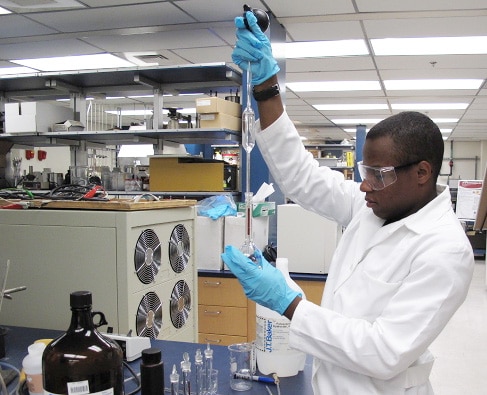Under the U.S. Patent Act, there are four legal requirements for patentability. The invention must be:
- Eligible for patentability under the Act — this is called “subject matter eligibility”
- Novel — that is, something new
- Non-obvious
- Useful — this is legally called the “utility requirement”
If you are thinking of patenting your invention, you will need the advice, counsel, and legal expertise of proven patent lawyers like the ones at Revision Legal. Here is a brief explanation of the four requirements for patentability.
Subject Matter Eligibility Requirement
The Patent Act identifies four “subject matters” that can be patented — processes, machines, manufactured articles, and compositions of matter. A process can be anything like a method of using heat, chemicals, and other techniques for creating a solvent or a tasty beverage. Machines and manufactured articles are everywhere in our daily lives from automobiles to the tires on the automobiles. “Compositions of matter” is a bit more complex, but examples would include the solvent and tasty beverage mentioned above along with patented plants and animals.
As can be seen, the definition of patent “subject matter” is very broad. However, it is not unlimited. To date, courts have determined that there are at least three categories of things that are not eligible for patents — abstract ideas, laws of nature, and natural phenomena. See the US Supreme Court’s decision in Alice Corp. v. CLS Bank International, 134 S.Ct. 2347 (2014).
These three exceptions to patentability have become important in recent decades because courts have held that software and computer code are often nothing more than “abstract ideas.” Thus, computer software, apps for mobile phones, data structures, and features related to internet functioning are not generally patentable. Other examples of nonpatentability include musical, artistic, and literary works.
Novelty Requirement
The second legal requirement for an invention to be patentable is novelty. This encompasses the idea that the invention must be new and not disclosed to the world (with a “grace period” of about a year). This means that if, more than a year ago, your invention was sold to the public or was made public at a forum or in some sort of media publication, your invention cannot be patented. Likewise, if your invention was already invented — and maybe even patented — no new patent will issue. As part of the patent process, all patent applications are examined by an attorney at the U.S. Patent Office. Among other things, the patent attorney will look at prior patents and what is called “prior art” to determine if your invention is new. If all of the material aspects and features of your invention can be found in prior patents and prior art, then the patent application will be denied.
Nonobviousness Requirement
A new invention must also not be obvious to be patentable. As with the novelty requirement, nonobviousness is generally determined by review and examination of prior patents and prior art. This is particularly the case with inventions that are modifications to or “improvements” of previous inventions. In examining prior patents and prior art, the Patent Office will ask the question of whether a “person of ordinary skill” in the industry or field of endeavor would see the modification, different combination of elements, change, addition, or “improvement” as obvious. Examples of obviousness might include simple substitution of materials or merely changing scales, sizes, or quantities. A determination of obviousness is also typically made if the invention does not result in a different or unpredictable result from previous inventions, even though the elements of the “new” invention have been combined, modified, or changed in some unique manner
Utility Requirement
Finally, a new invention must be useful before it can be patented. This means that, as part of the application, the inventor must identify a practical or specific usefulness — utility — of the invention. Generally, the utility requirement is not difficult to satisfy. Often, an invention is considered to have a facial utility if a “person of ordinary skill” in the relevant industry or field of endeavor would immediately appreciate why the invention is useful based on the characteristics of the invention.
For more information or if you have questions about applying for a patent, contact the patent lawyers at Revision Legal at 231-714-0100.




